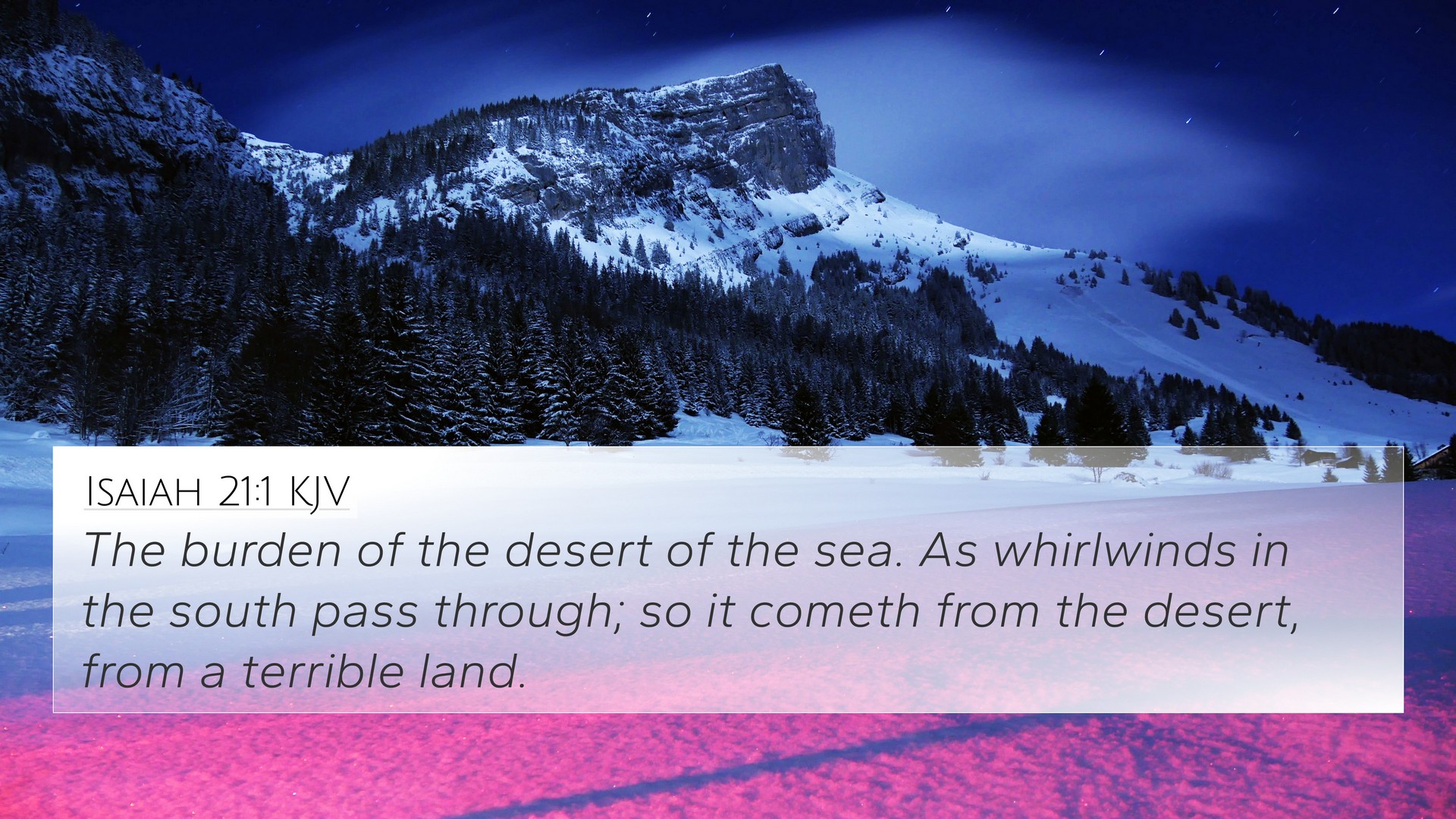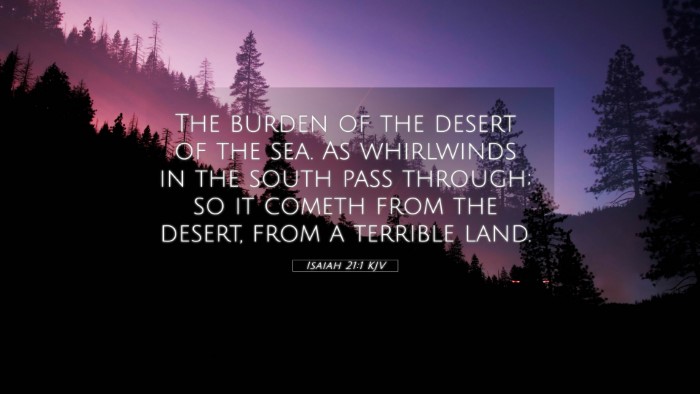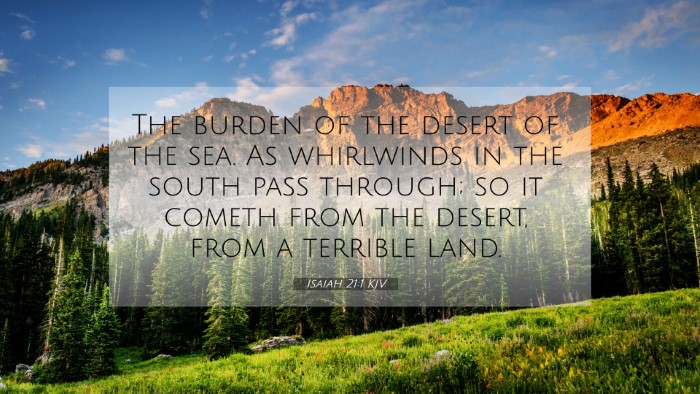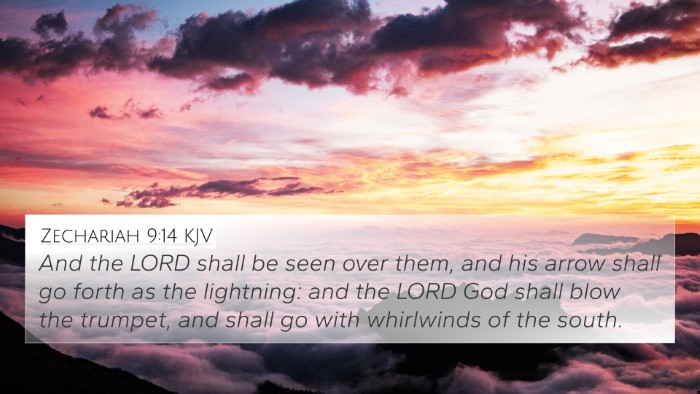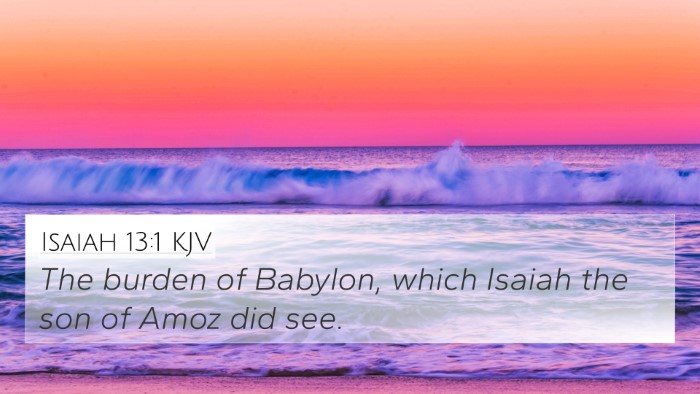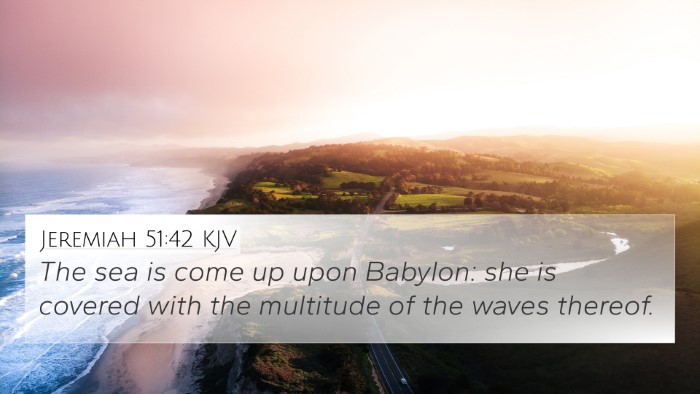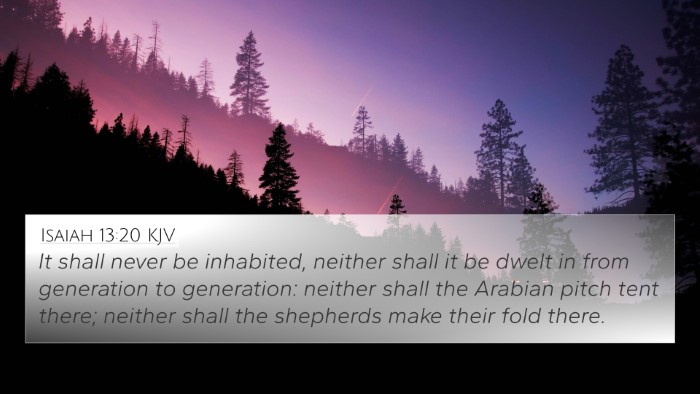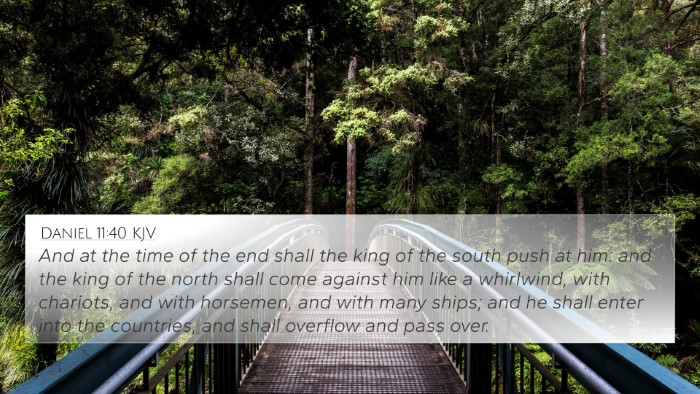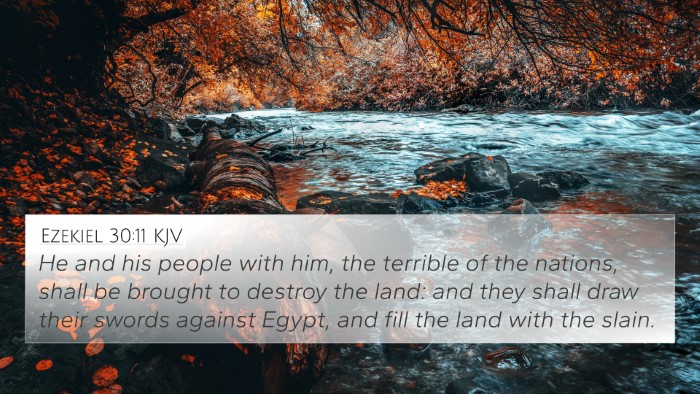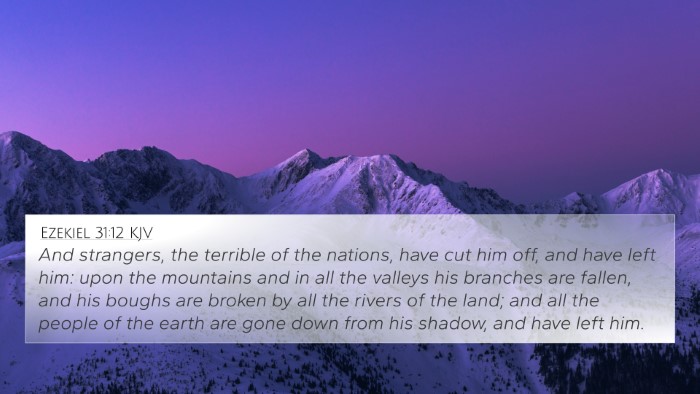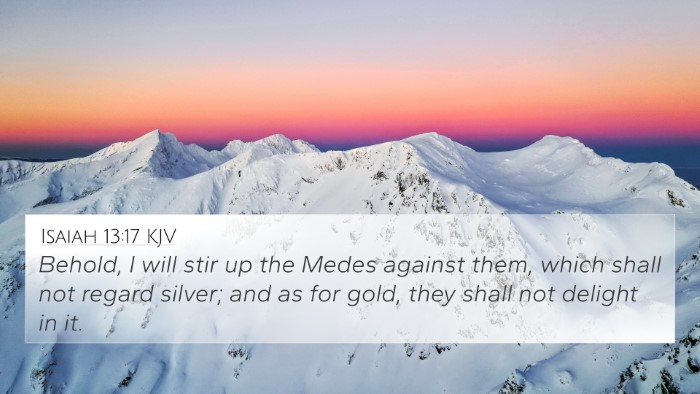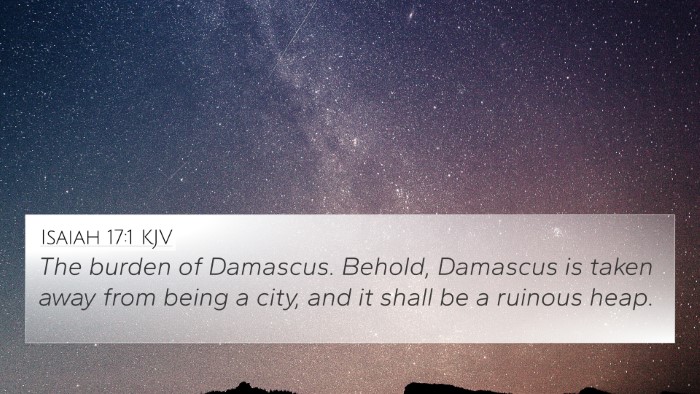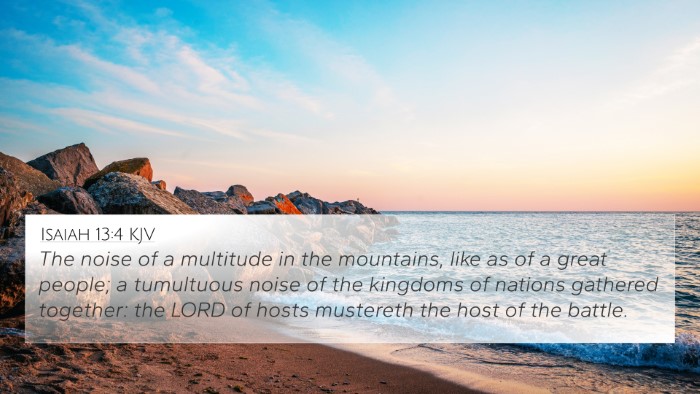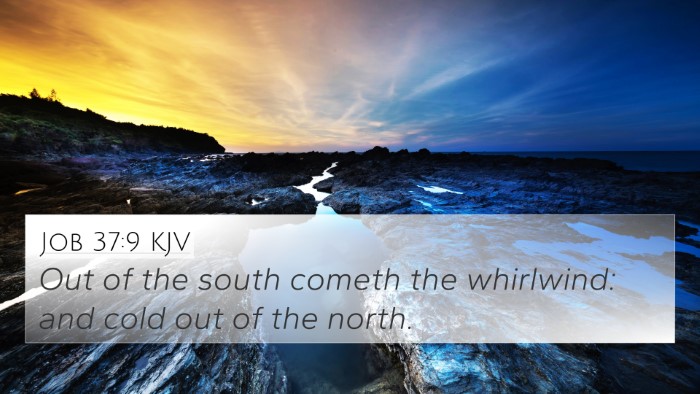Understanding Isaiah 21:1
Isaiah 21:1 states:
"The burden of the desert of the sea. As whirlwinds in the south pass through; so it cometh from the desert, from a terrible land."
This verse is rich in prophetic significance and imagery. It refers to a divine revelation concerning a vast desert region, often interpreted as a broader metaphor for Babylon, which was a significant power during Isaiah's time.
Summary of Interpretations
The following insights combine the interpretations of notable public domain Bible commentators:
- Matthew Henry: Henry emphasizes the term "burden" as a prophetic message indicating impending judgment or calamity. The imagery of whirlwinds symbolizes sudden and powerful movements, perhaps referring to military campaigns that sweep across nations.
- Albert Barnes: Barnes notes that 'the desert of the sea' could signify the vast emptiness of Babylon compared to the greatness of its impending ruin. He highlights how the reference to 'whirlwinds' serves to indicate the swift approach of judgment from God.
- Adam Clarke: Clarke points out the duality in the description, suggesting that while the text refers to a literal geographic location, it also resonates with spiritual desolation, emphasizing God's sovereignty over nations.
Key Themes and Connections
Several key themes emerge from Isaiah 21:1:
- Prophetic Burden: The message warns of the coming judgment and devastation, reflecting a common motif in prophetic literature.
- Sovereignty of God: The verse affirms God's power in shaping the fate of nations, evident in the imminent destruction of Babylon, a central theme throughout Isaiah.
- Symbolism of Nature: The use of natural phenomena, such as whirlwinds, symbolizes the uncontrollable force of divine action.
- Desolation and Judgment: The imagery of a desert conveys desolation, destruction, and judgment, which can reflect spiritual barrenness as well.
Cross-References
Understanding Isaiah 21:1 can be further enhanced through the examination of linked Bible verses. The following cross-references can help provide a deeper meaning:
- Jeremiah 51:8 - References the destruction of Babylon, emphasizing the sudden devastation.
- Revelation 18:2 - Mirrors the theme of Babylon's fall and desolation in apocalyptic literature.
- Isaiah 13:1-22 - Contains prophecies about Babylon's downfall, providing context for Isaiah 21:1.
- Isaiah 14:22-23 - Details further the judgment pronounced against Babylon, connecting to the theme of desolation.
- Job 38:1 - God's voice in the whirlwind highlights divine sovereignty over nature and nations.
- Ezekiel 30:4 - Speaks of turmoil and judgment against Egypt, illustrating God's power over nations.
- Psalms 83:4 - Reflects the confluence of nations against God's people, similar to the threats against Israel from Babylon.
- Amos 1:9 - Relates the judgment of cities and nations, emphasizing God's overarching control and justice.
- Micah 1:1-7 - Discusses divine judgment against cities, resonating with the themes of Isaiah 21:1.
- 2 Peter 3:10 - Speaks of the day of the Lord, echoing themes of divine intervention and judgment akin to coalitional prophecies seen in Isaiah.
Inter-Biblical Dialogue
This verse opens avenues for inter-Biblical dialogue, connecting themes across both the Old and New Testaments. By studying these connections, we delve into the broader narrative of God's justice and mercy:
- Links to the New Testament: The portrayal of Babylon in Revelation signifies the ultimate judgment of God, paralleling the themes found in Isaiah.
- Comparative Analysis: Insights gained from the Gospels also reflect the prophetic themes of judgment and divine sovereignty.
- Thematic Connections: Exploring how multiple authors speak to God's judgment invites deeper understanding of biblical prophecy from a thematic perspective.
Tools for Cross-Referencing
Exploring the connections between Bible verses enhances understanding:
- Bible Concordance: Useful for finding words and themes across different books.
- Bible Cross-Reference Guide: Helps identify relationships between scriptures.
- Cross-Reference System: Utilize systems within many Bibles that mark connections between verses.
- Comprehensive Bible Cross-Reference Materials: Resources available for deeper study of biblical texts and themes.
Conclusion
Isaiah 21:1 serves as a profound reminder of God's control over the events of history and His ability to bring judgment upon nations. By understanding its context and cross-references, one can appreciate the depth and significance of this prophetic verse. Contemplating Isaiah's message through biblical cross-referencing enriches the reader's insight into God's plans, the interconnectedness of scripture, and the overarching themes of judgment and redemption that permeate throughout the Bible.
